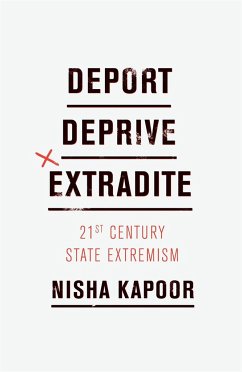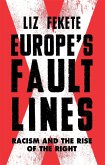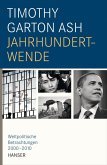When Minh Pham was extradited from Britain to the US to face terrorism related charges, his appeal against the deprivation of his British citizenship was still pending. Soon after he arrived his appeal was lost and he was effectively made stateless. Pham's story is one of the many in Deport, Deprive, Extradite, illustrating the perpetual enhancement of state power and its capabilities to expel.
In looking at these stories of Muslim men accused of terrorism-related offences, Nisha Kapoor exposes how these racialised subjects are dehumanized, made non-human, both in terms of how they are represented and via the disciplinary techniques used to expel them. She explores how the establishment of these non-humans enables the expansion of inhumanity more broadly, targeting Muslims, people of colour, immigrants and refugees. In asking what such cases illuminate and legitimate about precariousness and dispossession, she offers a radical analysis of the contemporary security state.
In looking at these stories of Muslim men accused of terrorism-related offences, Nisha Kapoor exposes how these racialised subjects are dehumanized, made non-human, both in terms of how they are represented and via the disciplinary techniques used to expel them. She explores how the establishment of these non-humans enables the expansion of inhumanity more broadly, targeting Muslims, people of colour, immigrants and refugees. In asking what such cases illuminate and legitimate about precariousness and dispossession, she offers a radical analysis of the contemporary security state.
A monumental study of how the 'War on Terror' has allowed states to operate outside the boundaries of reason and decency. This is courageous research, a book that should be read by all citizens of 21st century states that claim to be fighting extremism but have themselves become extremist states. Vijay Prashad, Executive Director, Tricontinental: Institute for Social Research, and author, The Poorer Nations: A Possible History of the Global South








